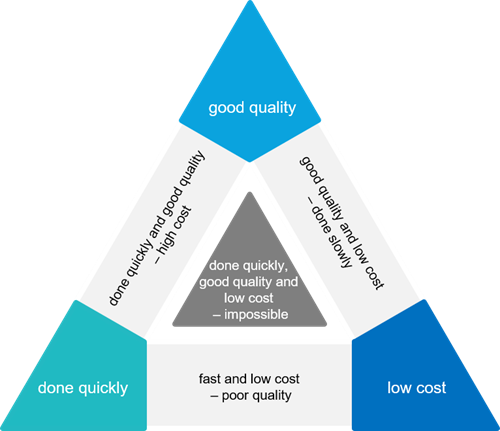Change Management - Fast, cheap or good quality?
Consider which the high-level risks you are prepared to take
Projects succeed when enough things go right to complete the intended outcome. Projects fail when things go wrong. Our experience demonstrates that projects do not fail because of ‘technical’ reasons, they almost always fail because of human factors. Therefore, risks are generally about the buy-in and appetite for change within an organisation, they include:
- availability of critical resources,
- stakeholder commitment
- alignment of social and political forces
- over-optimism about what is possible
These risks arise early, when everyone involved realises that the change will have an impact on them. Stakeholders will have views on what exactly is needed to address the issues (quality, speed of implementation and cost).
Most importantly we discover which stakeholders are committed to delivery (by their actions) and who is not (by their inaction).
When initiating change you will be under pressure to provide a good, fast and cheap solution. This does not exist. Let everyone know they do not exist and focus on what is possible as demonstrated in the adjacent figure. Remember the execution risk mind-set:
- Good, fast and cheap is impossible
- Good and fast is expensive
- Good and cheap is slow
- Fast and cheap is bad
This needs to be understood by all stakeholders if solutions are to be successfully negotiated. In other words, you need to manage Stakeholders’ expectations.









